By: Dr. Jenna Anding
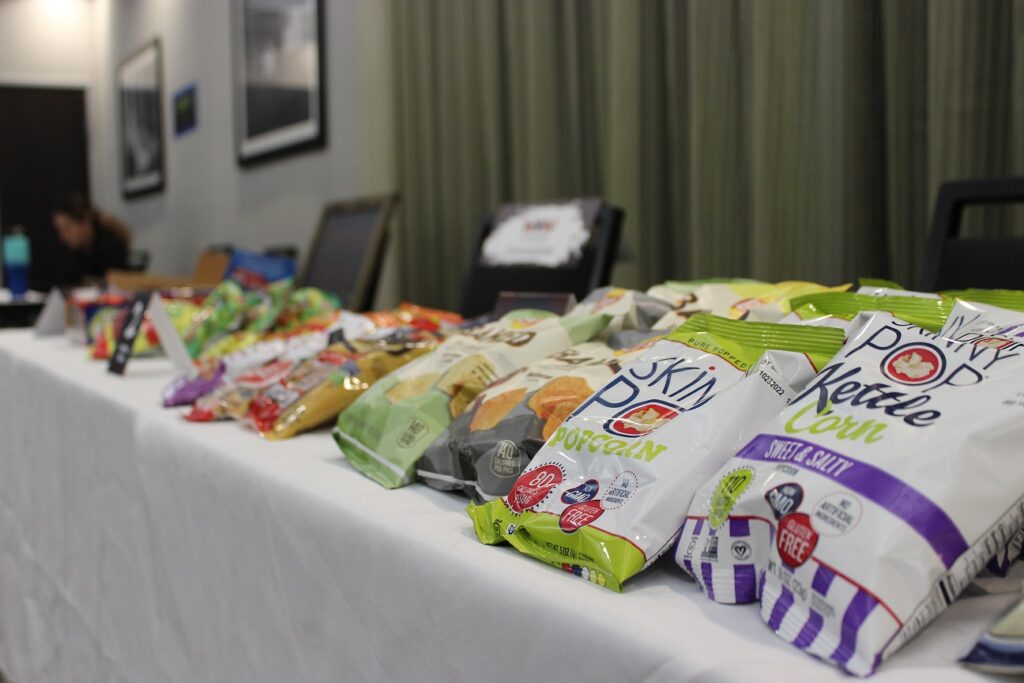
Depending on your job, the workplace may be an oasis of unhealthy foods. Whether it is the vending machine, potluck lunches, a celebration, or the random candy bowl sitting on someone’s desk, the workplace food environment can sometimes be a barrier for those who are trying to eat a little healthier.
As the Working on Wellness Environment (WOW-E) program works to help communities improve access to healthy foods (and opportunities for physical activity), I’m going to challenge you in this blog to focus on one part of the community, the workplace, since many of us spend one-third of our day (or more) there and probably eat at least one meal (and maybe a snack or two) each day of the workweek.
We recognize that not everyone is concerned about their food and beverage choices during the workday and that is okay. However, a number of the chronic diseases that we face today are linked to our food choices. For those employees who are trying to eat a little healthier, have you thought about implementing one or more food policies to ensure that healthy foods are available? Don’t worry – we aren’t suggesting that you take away all of the unhealthy foods; instead, we are suggesting using policy to ensure that the food environment in your workplace has some healthy options available so individuals can meet their personal nutrition goals.
Here are some examples of a healthy food policy for workplaces:
- For catered meals, adopt a policy that requires at least one healthy beverage option. The easiest way to implement this is to offer water or unsweetened tea. You can always offer sugar and non-nutritive sweeteners on the side and let employees choose.
- Consider adopting a policy that requires at least one or more healthy options in your vending machines. Suggestions can include unsalted nuts, popcorn, and baked chips. If you have an office refrigerator and provide complimentary snacks, think about low-fat yogurt or cheese sticks, or fresh fruit. Apples and clementine oranges have a long shelf-life so you can minimize food waste.
- For office celebrations that involve food, whether it is catered to or potluck, create a food policy that guarantees that there will be at least one healthy option available. This can be as easy as a fresh fruit salad, a healthy vegetable side dish, or even a tossed salad with dressing on the side. Having some desserts? No problem, just cut them in smaller portions.
Offering options for healthy foods in the workplace shows that you support your coworkers and employees who are trying to adopt a healthier lifestyle. If you aren’t convinced that a healthy food policy is worth trying, let me leave you with this to chew on: a healthier workforce can lead to lower healthcare costs and increased productivity. That is definitely something we can all support!

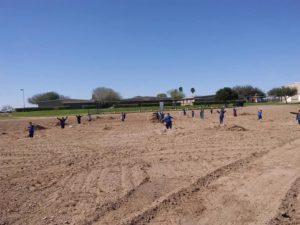 The orchard was established in January 2020 as part of a Starr County Farm to School
The orchard was established in January 2020 as part of a Starr County Farm to School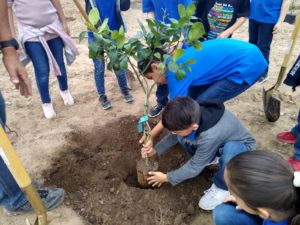
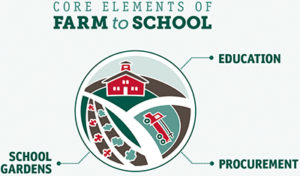
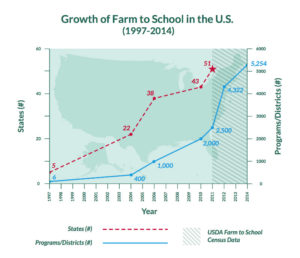 Farm to school implementation differs by location but always includes one or more of the following:
Farm to school implementation differs by location but always includes one or more of the following: The COVID-19 pandemic has forced many of us to work differently. Whether it’s taking on a new or additional job or household responsibilities, quarantining at home or wearing facial masks and protective gear, we’ve all had to adapt to these unprecedented times. This also includes adapting our outreach for WOW-E and working with many groups to meet online.
The COVID-19 pandemic has forced many of us to work differently. Whether it’s taking on a new or additional job or household responsibilities, quarantining at home or wearing facial masks and protective gear, we’ve all had to adapt to these unprecedented times. This also includes adapting our outreach for WOW-E and working with many groups to meet online.